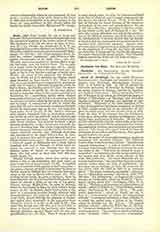

Jacob of Juterbogk (in the world BENEDICT STOLZENHAGEN), theologian and canonist, b. of poor parents near Juterbogk, Brandenburg, Germany, 1381; d. at Erfurt in 1465. In 1401 he entered the Cistercian monastery of Paradies, in Poland; hence his names Jacobus de Polonia, Jacobus de Paradiso, and Jacobus Cisterciensis. Being sent to the University of Krakow by his abbot, he obtained the degree of Doctor of Philosophy and Theology, and thereafter became professor of theology and preacher at that university. Displeased at the loose discipline of his order, he entered the Carthusian monastery at Erfurt in 1441, taught canon law at the university of that place for many years, and was elected rector in 1456. From the time of his entrance into the Carthusian Order he is often called Jacobus Carthusianus, Jacobus de Clusa, and Jacobus de Erfordia. He was full of zeal for reform in the Church, and in some of his writings severely criticizes Italian ecclesiastics for bestowing responsible benefices upon incapable and unworthy persons. Like many other great men of his time, he advocated the socalled conciliar theory, that a general council is above the pope.
He is the author of about eighty treatises, mostly on theological and canonical subjects. The following twelve of his works have been printed: “Quodlibetum statuum humanorum”, a sort of treatise on moral theology explaining the obligations of men in the various states of life; “Tractatus de animabus erutis a corporibus”, an interesting treatise on the condition of the human soul after death—seven editions of this work were published; “De valore Missarum pro defunctis celebratarum” (the preceding three incunabula contain neither place nor date of publication; the first came out at Esslingen in 1475, the second at Erfurt about 1463, the third in 1493 at an unknown place). “De causis multarum passionum”, edited by Pez in “Bibliotheca ascetica” (Ratisbon, 1835), VII, 389-444; “De indulgentiis”, a dogmatically correct treatise on indulgences, edited by Walch in “Monumenta inedita medii nevi” (Gottingen, 1764), II, ii, 163 sq.; “Petitiones religiosorum pro ref ormatione sui status”, edited by Kliipfel in “Vetus Biblioth ecclesiastica” (Freiburg im Br., 1780), 146 sq.; “De negligentia prielatorum”, edited by Walch, loc. cit., I, fasc. 4; “Avisamentum ad papam pro reformatione ecclesiae”, a memorial addressed to Pope Nicholas V, in which the author urges a reform in the Church, edited by Klupfel, loc. cit., 134 sq.; “De septem statibus ecclesiae”, edited by Walch, loc. cit., II, fasc. 2; “Sermones dominicales” (date and place of publication unknown); “De erroribus et moribus Christianorum” (Lubeck, 1488); “Lavacrum conscientiae” (Cologne, 1506), of which more than nine editions were published in the fifteenth century.
MICHAEL OTT

